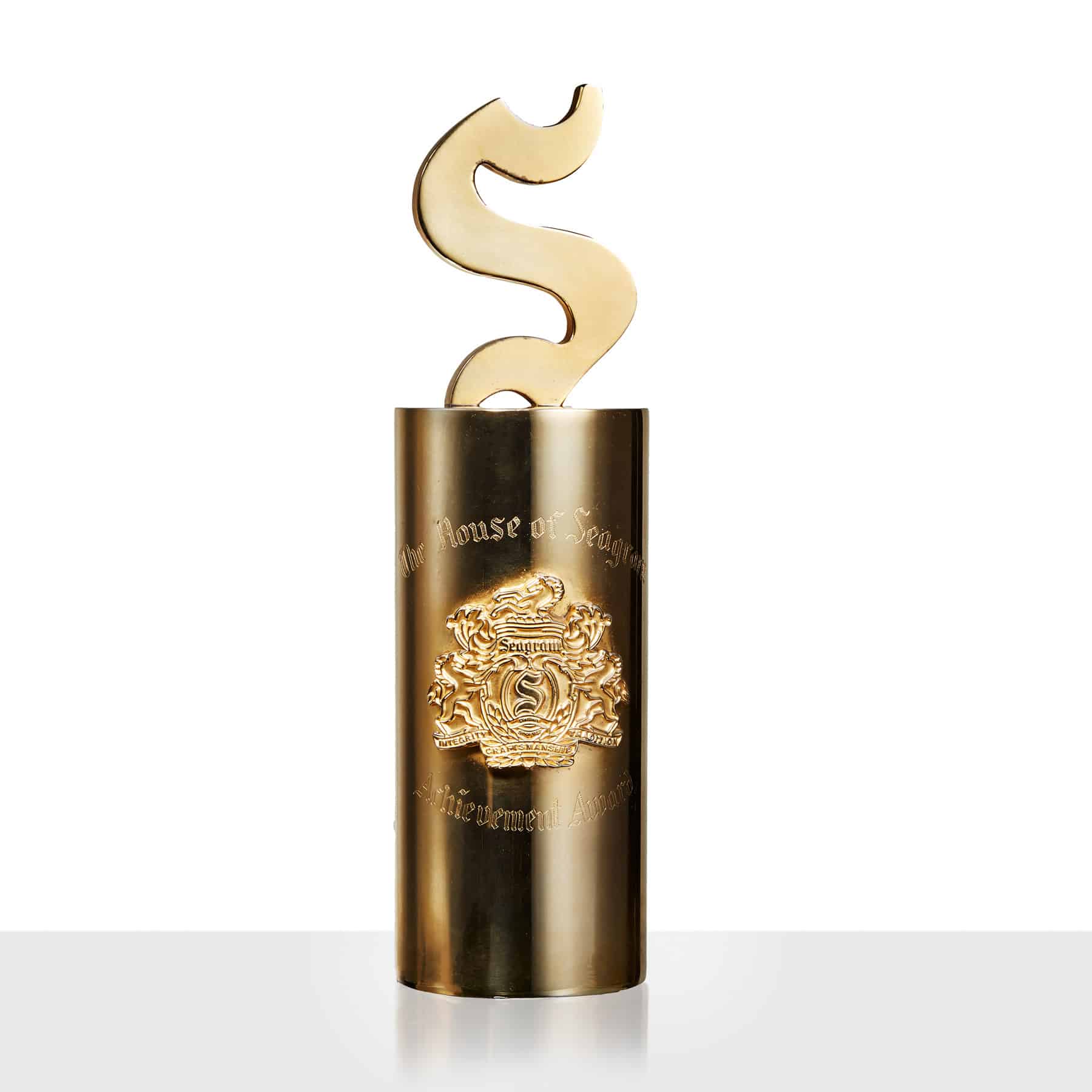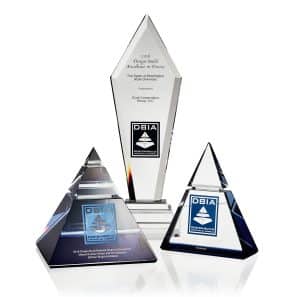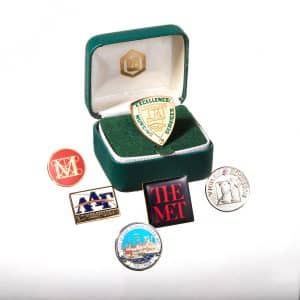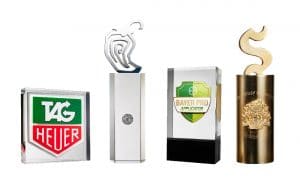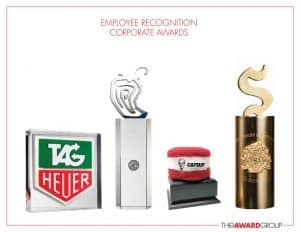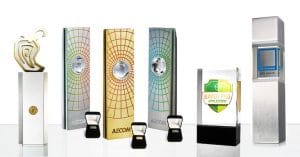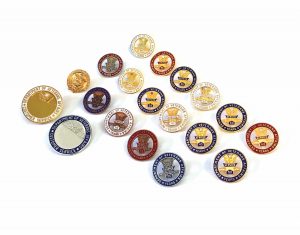Introduction
Need to recognize and incentivize employees for their hard work? Looking for data-driven solutions to promote employee engagement? Unleash the power of employee recognition programs. Award programs are an investment in your future and provide a number of advantages. They have been proven to boost morale, incentivize employees and reduce turnover. And when it comes to corporate awards, there is a variety you can choose from. Let’s take a closer look and we’ll also share some success stories.
Understanding Corporate Recognition Awards Program
Corporate recognition programs have become increasingly popular as organizations recognize the importance of employee engagement. These programs are designed to award employees for their hard work and dedication, ultimately driving their success and the success of the company as a whole.
Research shows that corporate recognition programs can be highly effective in boosting employee engagement and productivity. According to a study by the Incentive Research Foundation, 86% of organizations with formal employee recognition programs in place saw an increase in employee satisfaction. In addition, these programs have been found to improve retention rates and reduce turnover, ultimately saving companies money.
Employee recognition programs can take various forms, but the key is to tailor the awards to the specific needs and preferences of employees, ensuring they feel valued and appreciated. The Award Group is a company you can partner with to create a custom corporate recognition awards program.
Innovative Ideas for Corporate Recognition Awards Program
In today’s competitive business landscape, it’s essential for organizations to implement innovative awards and recognition programs in the workplace. These programs not only drive employee engagement but also contribute to their overall success and satisfaction. Here are some creative ideas to make your corporate recognition program stand out:
1. Peer-to-Peer Recognition
Encourage employees to acknowledge and appreciate each other’s efforts by implementing a peer-to-peer recognition program. This not only fosters a positive work environment but also builds a culture of appreciation and teamwork. Employee recognition programs like these could be paired with custom certificates.
2. Employee Milestone Recognition Program
Recognizing and celebrating employee milestones, such as reaching sales targets or completing a project successfully, is crucial in boosting morale and motivation. These incentives not only show appreciation but also provide employees with the motivation to achieve more milestones.
3. Work Anniversary Recognition
Employee loyalty is valuable and should be recognized. Implement a work anniversary recognition program to celebrate employees’ dedication and commitment.
Employee years of service recognition help to create a workplace culture that motivates employees and contributes to the success of your organization.
Best Practices for Implementing Employee Recognition Programs
According to a study by Gallup, companies with effective awards and recognition programs in the workplace have higher employee engagement rates and are more likely to achieve their business goals. One best practice for starting a program is partnering with an expert in the industry like The Award Group.
Ongoing Evaluation and Feedback
Ongoing evaluation and feedback are crucial components of a successful employee recognition program. Regularly assessing the program’s effectiveness allows for adjustments and improvements to be made. The Award Group can help with any changes or updates needed.
Consistent and Timely Recognition
Consistent and timely recognition is also essential, as it reinforces positive behaviour and motivates employees to continue performing at their best. This is sometimes overlooked when it comes to awards and recognition programs in the workplace. The Award Group can create a website specific to your needs, allowing for a streamlined process.
Acknowledging employees’ efforts and accomplishments in other meaningful ways can be just as impactful. For example, emblematic jewelry can be worn by recipients with pride and further the message of company appreciation and recognition of hard work.
By following these best practices for employee recognition programs, organizations can successfully implement programs that not only drive employee engagement but also contribute to overall organizational success.
How to Design an Effective Corporate Recognition Awards Program
Designing effective awards and recognition programs in the workplace is essential for maximizing employee engagement. By following key principles, companies can create a program that drives desired behaviour and motivates employees to perform at their best. Not sure where to start? The Award Group can take you through the process.
Defined Objectives
Start by clearly defining the objectives of your employee recognition programs. What specific behaviour or achievements do you want to encourage? Whether it’s hitting sales targets, demonstrating exceptional teamwork, or going above and beyond in customer service, aligning your program with these objectives will ensure it is focused and impactful.
Budget Allocation
Setting a budget for your employee recognition programs is essential. Consider allocating a percentage of your company’s budget specifically for awards and recognition. By investing in this area, you send a clear message to employees that their efforts are valued, and it also ensures that the program is sustainable over the long term. The Award Group will tailor your award program to your business needs, factoring in budget, materials, and timing.
The Award Group: Client Employees Recognition Programs Success Stories
At The Award Group, we have had the privilege of working with numerous clients to implement successful employee recognition programs. Two standout success stories are our partnerships with The Department of Veteran Affairs and The Board of Pharmaceutical Specialties.
For The Department of Veteran Affairs, we developed custom, emblematic lapel pins to recognize their employees’ dedication and commitment to serving veterans. Each time an employee reaches a milestone of 10, 20, 25 years and so on, they are given a service pin. The awards are given out during a ceremony that celebrates the achievement among peers, which is a big part of the recognition. The employees feel valued and appreciated for their loyalty, which translated into improved performance and a more positive work culture.
Similarly, our collaboration with The Board of Pharmaceutical Specialties (BPS) resulted in a highly effective awards program that enhanced employee satisfaction and improved efficiency. By working with The Award Group, BPS could keep the time commitment to their candidates and customers, while increasing reliability, as well as the quality of the certificates with newer technology. These success stories highlight the power of employee recognition programs in driving employee engagement and success.
Frequently Asked Questions –
Corporate recognition awards are important because they provide a means to recognize and appreciate the hard work and dedication of employees. These programs not only boost employee morale but also contribute to a positive work culture. When employees are awarded for their efforts, they feel valued and motivated to perform better, which in turn improves overall productivity. Additionally, awards and recognition programs in the workplace help in retaining top talent by providing an incentive for employees to stay with the company.
A corporate awards program can benefit both the company and its employees in several ways. For the company, such a program can increase employee motivation, resulting in higher productivity and improved business outcomes. It also helps in attracting and retaining top talent, as employees are more likely to stay with a company that recognizes and awards their efforts. From an employee perspective, a awards program provides a sense of recognition and appreciation, boosting morale and job satisfaction. It can also enhance the overall work culture by fostering healthy competition and encouraging continuous improvement.
To maintain employee engagement, it is important to strike a balance when giving out awards. While there is no one-size-fits-all approach, it is generally recommended to have a regular awards cadence. Quarterly or monthly awards are often effective, as they provide timely recognition and help sustain motivation. Additionally, for successful employee recognition programs, providing occasional surprise awards or recognizing significant achievements outside of the regular cadence can further enhance employee engagement.
To ensure that employee recognition programs align with company values and goals, it is essential to involve key stakeholders in its design and implementation. This includes seeking input from employees, managers, and executives who can provide insights into the values and goals that are important to the organization. By conducting surveys, focus groups, or workshops, the program can be tailored to align with the company’s specific values and goals.
Recognition programs in the workplace help motivate employees by providing them with tangible recognition for their efforts. When employees are awarded for their hard work, they feel valued and appreciated, which enhances their motivation to perform at their best. These awards can take various forms, such as monetary bonuses, gift cards, or public recognition. By linking awards to specific achievements or behaviour, a corporate recognition program encourages employees to set and strive for goals.
The success of an employee recognition program can be measured through various methods. One way is to assess employee satisfaction and retention rates after implementing the program. Surveys or feedback sessions can help in evaluating employee morale and job satisfaction.
Analyzing data related to productivity, sales, and customer satisfaction can provide insights into the program’s effectiveness. It’s important to continuously assess the recognition program’s success to make adjustments and improve its overall impact. Evaluating employee recognition programs helps companies to identify and resolve any issues or inefficiencies and, as a result, promote employee engagement, loyalty, and productivity.
Employee recognition programs can include customized certificates or plaques. These types of awards foster a positive work environment and strengthen the employee-employer relationship. Awards and recognition programs in the workplace can encompass a wide variety of categories and types. Recognition programs in the workplace can encompass a wide range of categories and types. Consider which type would fit best for your company.

